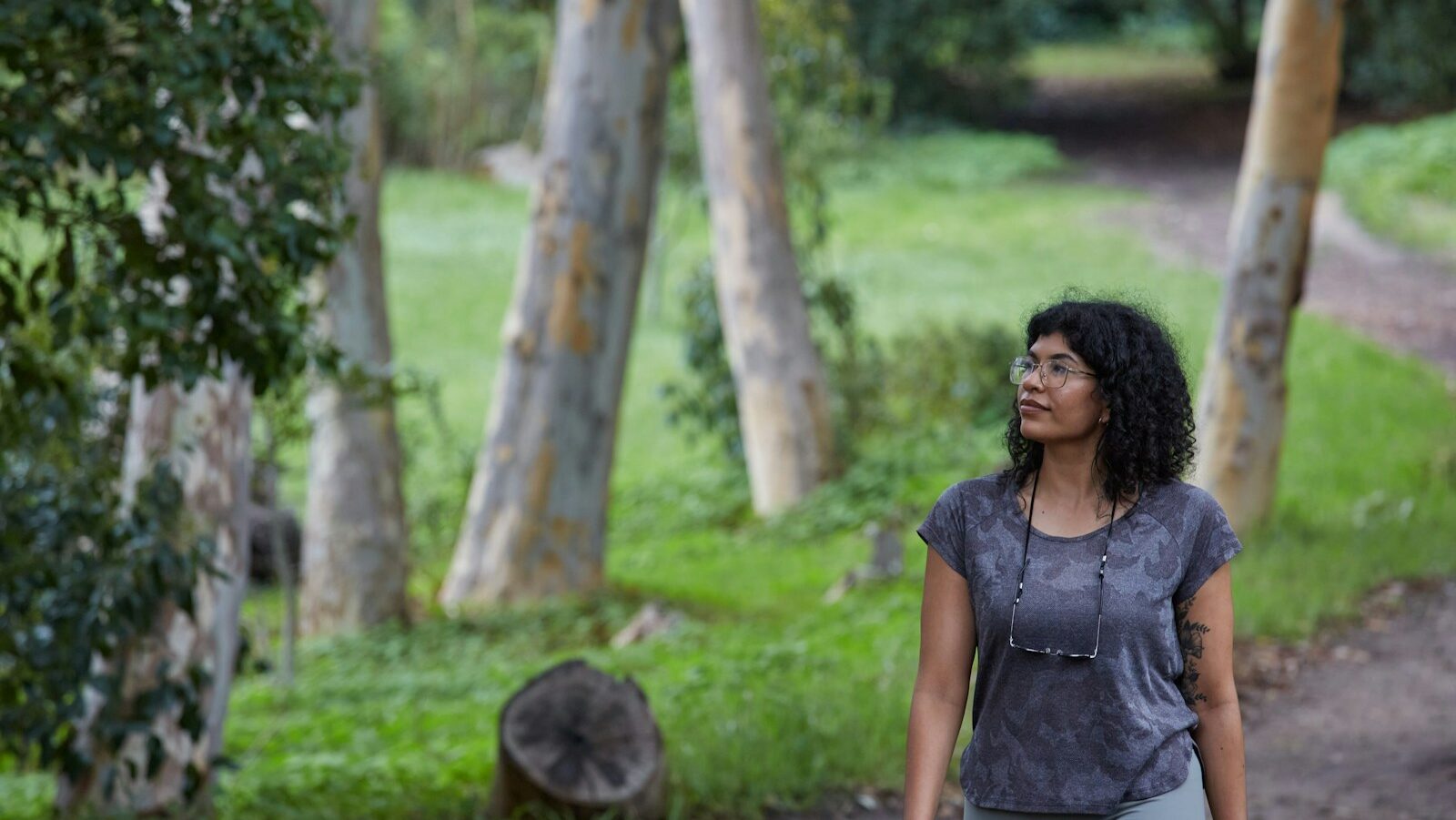A coaching primer to ecological well-being: a systemic approach to holistic well-being
Ecological well-being, defined by the health of living systems and the planet, is integral to individual and collective wellness. This primer covers coaching tools and resources to help clients develop relationships with the natural world and cultivate a future-focused perspective on ecological well-being.
Wisdom Weavers
The relationship between nature and well-being
Ecological well-being refers to the interconnected health of people, living systems, and the planet. Individual and community well-being are intricately intertwined with the health of the planet, relying on clean water and nutritious food. Similarly, access to natural environments can improve mental well-being and is linked to increased creativity, focus, and happiness. On a global level, ecological challenges like severe weather, rising temperatures, and air pollution also impact well-being, with the WHO estimating that by 2030, climate change will cost 2–4 billion USD in annual damage to human health.
Ecological well-being recognizes the two-way relationship between people and the planet. In the same way that the natural environment impacts human health, human activity also shapes local ecosystems. In recent years, a growing number of policymakers, business leaders, scientists, communities, and individuals have started working to create regenerative relationships that enhance ecological well-being for all living organisms. As a part of this shift, new ecological and climate-conscious coaching strategies have emerged to support the well-being of both the coaching client and their surrounding ecology.
Coaching’s role in promoting ecological well-being
Coaches play a vital role in promoting ecological well-being in their individual practices and on an industry-wide level. In organizations, coaches are taking on a growing role in supporting Environmental, Social, and Governance (ESG) strategies. Individual coaching clients are also increasingly seeking help to create careers in sustainability, overcome climate anxiety, or make sustainable choices in their daily lives. By framing sustainability goals within the context of ecological well-being, coaches can help strengthen their clients’ commitment to protecting the environment while also benefiting from a positive relationship with the planet.
A coach’s perspective
“Connecting with nature is not just spending more time in nature; it is about the relationship. So, connecting more with nature can mean using our five senses to connect with nature, finding meaning in nature, looking for awe experiences, and bringing more compassion to nature, including to the plants, trees, and wildlife around us.”

“Many people do not connect to nature anymore, and some even feel afraid of nature. In the United Kingdom, people of color and women are less willing to go for a walk in the open countryside than white men because they fear being attacked or reprimanded by a landowner. Our access to nature feels limited.”

Coaching tools to support client ecological well-being through nature connectedness
Nature connectedness, defined as the strength of an individual’s relationship with the natural world, is a key predictor of pro-environmental motivation and behavior. Research indicates that there are five pathways to nature connectedness: contact, meaning, beauty, emotion, and compassion. Coaching approaches can help clients practice the five pathways, fostering a sense of connection and reciprocity with the planet. Coaches can also help clients unleash their character strengths to help manifest the pathway of interest.

Start small and start local
Building client relationship to nature can take practice when clients are uncomfortable or unfamiliar with natural settings. Research indicates that when individuals interact with nature in public parks or private settings like the home, they experience stronger nature connectedness. By taking coaching sessions outdoors, coaches provide a safe and guided space for clients to contact and engage with nature in new ways. Lesley Roberts, the founder of Coaching Outdoors, suggests that even in video-based calls, coaches can bring nature into the coaching session by keeping plants within the video background, asking clients to describe their view out the window, or sharing an image or video of a natural setting.
The goal of coaching outdoors is not simply to recognize nature as a passive object but to allow the environment to co-coach, sharing lessons from the natural world. This can include finding meaning by relating client experiences to natural phenomena or exploring environmental metaphors in music, stories, and art.
Engage client strengths to support connection
Research in character strengths highlights how client strengths can contribute to both greater appreciation and pro-environmental behavior as a result of the client-nature relationship. In a recent study, the strength, appreciation of beauty, showed the strongest connection, followed by the strength, love of learning. Coaches can reinforce client strengths like hope, kindness, fairness, curiosity, teamwork, and appreciation of beauty to explore how the natural world demonstrates each of these strengths and how clients can contribute their strengths to give back to the planet. Coaches might help clients find ways to use these strengths in their daily life. Exploring emotions like awe, mindfulness, and flow, within the context of nature can strengthen a client’s sense of ecological well-being.
Explore the role of humans as part of nature
Because humans are part of a greater ecosystem, they are also part of nature. Professor Peter Hawkins shares that in his systemic coaching engagements he brings attention to the ecology in the room by asking clients to think about the living systems that support the client’s life and well-being. Coaches can use these conversations to examine client well-being as part of a natural system, foster gratitude for the ways that nature supports well-being, and explore how this relationship motivates client actions.
Futures-thinking compliments coaching practices for ecological well-being
Beyond fostering a sense of connection with nature, coaches can promote client motivation and purpose by looking to the future. Coaching conversations provide a safe container for clients to project an ideal future for ecological well-being, evaluating what new behaviors or changes are needed to support that future vision. As a guided exploration, future-focused coaching methodologies help clients move away from judgements about what they “should” be doing, and imagine new possibilities that strengthen client autonomy and confidence.
Tools from systemic coaching: Contracting with future stakeholders
Systemic coaching methodologies, such as contracting with future stakeholders, enable clients to consider their impact on future generations and the planet. For example, Professor Peter Hawkins evokes ecological well-being by posing five questions to invite ecology into the coaching conversation with the client:
- Tell me about you. What do you most care about?
- What makes your heart sing?
- Who and what does your work and life serve?
- And who else? And what about the more than human world? Who in the future?
- If all of these stakeholders were present in the room right now, what would they say is the work you and I need to do together in our coaching dialogues?
By including future stakeholders in the conversation, two types of legacy emerge: a legacy for future generations and a legacy for the planet. As clients explore these two types of legacy, they cast a vision for their future ecological impact that reinforces present motivation and ecological well-being.

A Future-Focused Wheel of Life: ICF Thought Leadership Institute Wheel of Well-Being
The Futures Thinking Wheel of Well-Being expands upon the Wheel of Life to include both individual and collective levels of well-being. At the heart of the wheel, Ethics of Care emphasizes relationship and the interconnected nature of humanity’s shared future.
Using the Wheel of Well-Being as a starting point for conversation, coaches can help clients think through what each segment means to them individually and on a wider level. As a second step, coaches can invite clients to ask, “What if?” questions, casting a vision for the future. These questions can help clients consider how personal goals, behaviors, and beliefs impact wider systems like their community and the planet.
Ecological Well-Being and the future of coaching
Ecological well-being reveals the need to update holistic well-being models and coaching approaches beyond the level of the individual. Without healthy ecosystems, the future of human well-being suffers. Coaching conversations can help clients understand the bidirectional relationship between human and planetary well-being, strengthening the skills needed to connect to nature and support long-term planetary health.
More resources on ecological well-being:
- Review research on the “Five Pathways” to nature connectedness
- Learn about evidence-based tools like “Three Good Things in Nature” to strengthen client-nature connection
- Read the book Ecological and Climate Conscious Coaching to discover more coaching tools and perspectives on ecological well-being
- Explore insights from futures-thinking in the article “Regenerative Futures: Eight Principals for Thinking and Practice”
- Discover new coaching frameworks like Regenerative Coaching by Alison Whybrow




